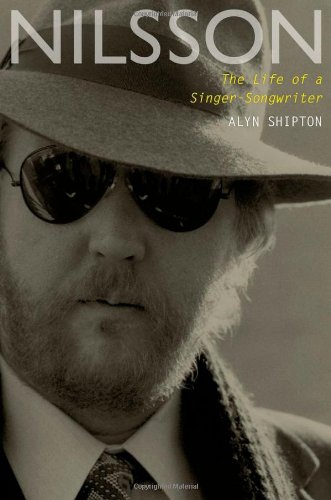WINNER of 2014 ARSC Award for best research in Pop Music and WINNER of 2014 ASCAP Deems Taylor/Virgil Thomson Award for Pop Biography.
The first full biography of Harry Nilsson, praised by Popmatters as “The Perfect Biography of an Imperfect Man”.
Paul McCartney and John Lennon described him as the Beatles’ “favorite group,” and yet no figure in popular music is as much of a paradox as Harry Nilsson. A major celebrity at a time when stadium rock was in its infancy and huge concerts and festivals were becoming the norm, Nilsson’s instrument was the studio, his stage the dubbing booth, his greatest technical triumphs were masterful examples of studio craft, and he studiously avoided live performance. He was a gifted composer of songs for a wide variety of performers, having created vivid flights of imagination for the Ronettes, the Yardbirds and the Monkees, yet Nilsson’s own biggest hits were almost all written, ironically, by other composers and lyricists.
He won two Grammies, had two top ten singles, and numerous album successes. Once described by his producer Richard Perry as “the finest white male singer on the planet,” near the end of his life, his career was marked by voice-damaging substance abuse and the infamous deaths of both Keith Moon and Mama Cass in his London flat. His music remains prevalent today, through the 1995 tribute album For the Love of Harry: Everybody Sings Nilsson (featuring performances of Nilsson’s hits by Ringo Starr, Stevie Nicks, Fred Schneider and others) and recent covers, such as Aimee Mann’s recording of “One” (popularized as the main track on the Magnolia soundtrack) and Neko Case’s arrangement of “Don’t Forget Me” on her album, Middle Cyclone.
Alyn traces Nilsson’s life from his Brooklyn childhood to his Los Angeles adolescence, and charts his gradual move into the spotlight as a talented songwriter. With interviews from Nilsson’s friends, family and associates, and material drawn from an unfinished draft autobiography Nilsson was writing prior to his death, Shipton probes beneath the enigma and the paradox to discover the real Harry Nilsson, and thereby reveals one of the most creative talents in 20th century popular music.
